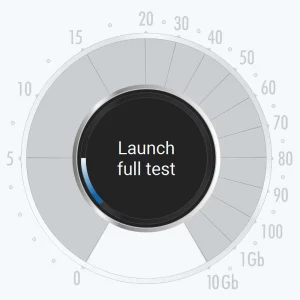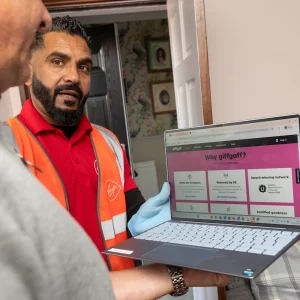Sponsored Links
Entanet UK Slams Digital Economy Act as Rights Holders Join ISPs in Judicial Review
Posted: 31st Jan, 2011 By: MarkJ

 Communications provider Entanet has attacked the government's plan to force UK ISPs into paying a quarter (25%) of the costs associated with enforcement of the controversial Digital Economy Act 2010 (DEA). The DEA seeks to tackle "illegal" (unlawful) internet copyright infringement by imposing a series of new measures, including a system of customer warning letters (notifications), upon broadband providers.
Communications provider Entanet has attacked the government's plan to force UK ISPs into paying a quarter (25%) of the costs associated with enforcement of the controversial Digital Economy Act 2010 (DEA). The DEA seeks to tackle "illegal" (unlawful) internet copyright infringement by imposing a series of new measures, including a system of customer warning letters (notifications), upon broadband providers.The cost sharing Secondary Legislation was officially set before parliament last week by the Department for Culture, Olympics, Media and Sport (here). The Communications Minister, Ed Vaizey, claimed that Rights Holders would "benefit by around £200m a year" but would still have to stump up 75% of the costs.
Entanet’s Head of Marketing, Darren Farnden, said (Opinion Blog):
"The government’s requirements penalise us for simply providing a service. As we have said many times before, ISPs are conduits of information, not the owners and certainly not the Internet police. In our opinion, rights holders should concentrate on how they need to adjust their business models to more effectively use the Internet for commercial gain, at the same time considering the steps they need to take to protect their assets.
I am so keen to understand what benefits the ISPs are getting in return for shelling out for 25% of the costs. Perhaps Vaizey thinks it’s the satisfaction of knowing we’ve helped make the world a better place. Wake up! It’s getting tougher to succeed in our economy as it is! The last thing ISPs need to be told is they now have to be penalised for providing access to the Internet, especially at a time when the government wants ‘the market’ to bring faster access to everyone in the next few years."
"The government’s requirements penalise us for simply providing a service. As we have said many times before, ISPs are conduits of information, not the owners and certainly not the Internet police. In our opinion, rights holders should concentrate on how they need to adjust their business models to more effectively use the Internet for commercial gain, at the same time considering the steps they need to take to protect their assets.
I am so keen to understand what benefits the ISPs are getting in return for shelling out for 25% of the costs. Perhaps Vaizey thinks it’s the satisfaction of knowing we’ve helped make the world a better place. Wake up! It’s getting tougher to succeed in our economy as it is! The last thing ISPs need to be told is they now have to be penalised for providing access to the Internet, especially at a time when the government wants ‘the market’ to bring faster access to everyone in the next few years."
The comments follow hot on the heels of an independent London barrister, Francis Davey, whom recently even went so far as to suggest that the cost sharing legislation had been "misdrafted" and could "also be unlawful" (here). It remains to be seen whether that is actually the case.
Meanwhile a group of Rights Holders, including the Premier League, British Phonographic Industry (BPI) and other media (TV, Film etc.) firms, have been given permission by the High Court to intervene in the DEA's Judicial Review (i.e. join the legal debate). Two ISPs, BT and TalkTalk UK, won the review on the following four grounds last year.
The four Judicial Review groundsIn addition, the consumer friendly Open Rights Group (ORG) has also been given permissions to intervene. The move, which is not unexpected, was naturally allowed by the related ISPs and the government.
* Firstly the Government should have notified the European Commission under the Technical Standards Directive which they failed to do.
* The two ISPs also claimed that the provisions were not compatible with the E-Commerce Directive which provides that ISPs cannot be held liable for data going though their networks.
* Thirdly, ISPs have to deal with data that is not specifically permitted under the Privacy and Electronic Communications Directive.
* The fourth ground [Judge's decision still pending] dealt with the disproportionate impact of the provisions on ISPs and in particular referred to the opinion of the European Data Protection Supervisor, Peter Hustinx. He concluded that generic three strikes regimes are a disproportionate measure.
Open Rights Group Statement
Having permission to intervene means that we'll be able to put forward our case, in court, in clear terms, to outline why we think the Act is so badly flawed. Across all four points we will be making arguments that the Act threatens to curtail people's rights to freedom of expression, endangers their privacy, and will have a disproportionate impact not only only the public but on businesses too.
The reason ORG continues to campaign against policy such as the DEA is that we believe more flexible copyright can support freedom of expression, creativity and innovation. And, likewise, we believe that aggressive enforcement of copyright, like the measures included in the Digital Economy Act, will mean our freedom of expression and privacy will be undermined.
Having permission to intervene means that we'll be able to put forward our case, in court, in clear terms, to outline why we think the Act is so badly flawed. Across all four points we will be making arguments that the Act threatens to curtail people's rights to freedom of expression, endangers their privacy, and will have a disproportionate impact not only only the public but on businesses too.
The reason ORG continues to campaign against policy such as the DEA is that we believe more flexible copyright can support freedom of expression, creativity and innovation. And, likewise, we believe that aggressive enforcement of copyright, like the measures included in the Digital Economy Act, will mean our freedom of expression and privacy will be undermined.
The involved parties are now all very busy preparing their cases and submissions, with a full hearing expected to get underway by April 2011. However the review is unlikely to stop the DEA in its tracks, although it could result in some fresh amendments and has already contributed to wider delays in the overall process and related ISP code construction.
Search ISP News
Search ISP Listings
Search ISP Reviews
Latest UK ISP News







Cheap BIG ISPs for 100Mbps+
150,000+ Customers | View More ISPs
Cheapest ISPs for 100Mbps+
Modest Availability | View More ISPs
Latest UK ISP News
Helpful ISP Guides and Tips
Sponsored Links
The Top 15 Category Tags
- FTTP (6917)
- BT (3917)
- Politics (3120)
- Business (2822)
- Openreach (2703)
- Building Digital UK (2537)
- Mobile Broadband (2527)
- Statistics (2162)
- FTTC (2153)
- 4G (2132)
- Virgin Media (2066)
- Ofcom Regulation (1802)
- 5G (1782)
- Fibre Optic (1617)
- Wireless Internet (1615)
Sponsored
Copyright © 1999 to Present - ISPreview.co.uk - All Rights Reserved - Terms , Privacy and Cookie Policy , Links , Website Rules






























